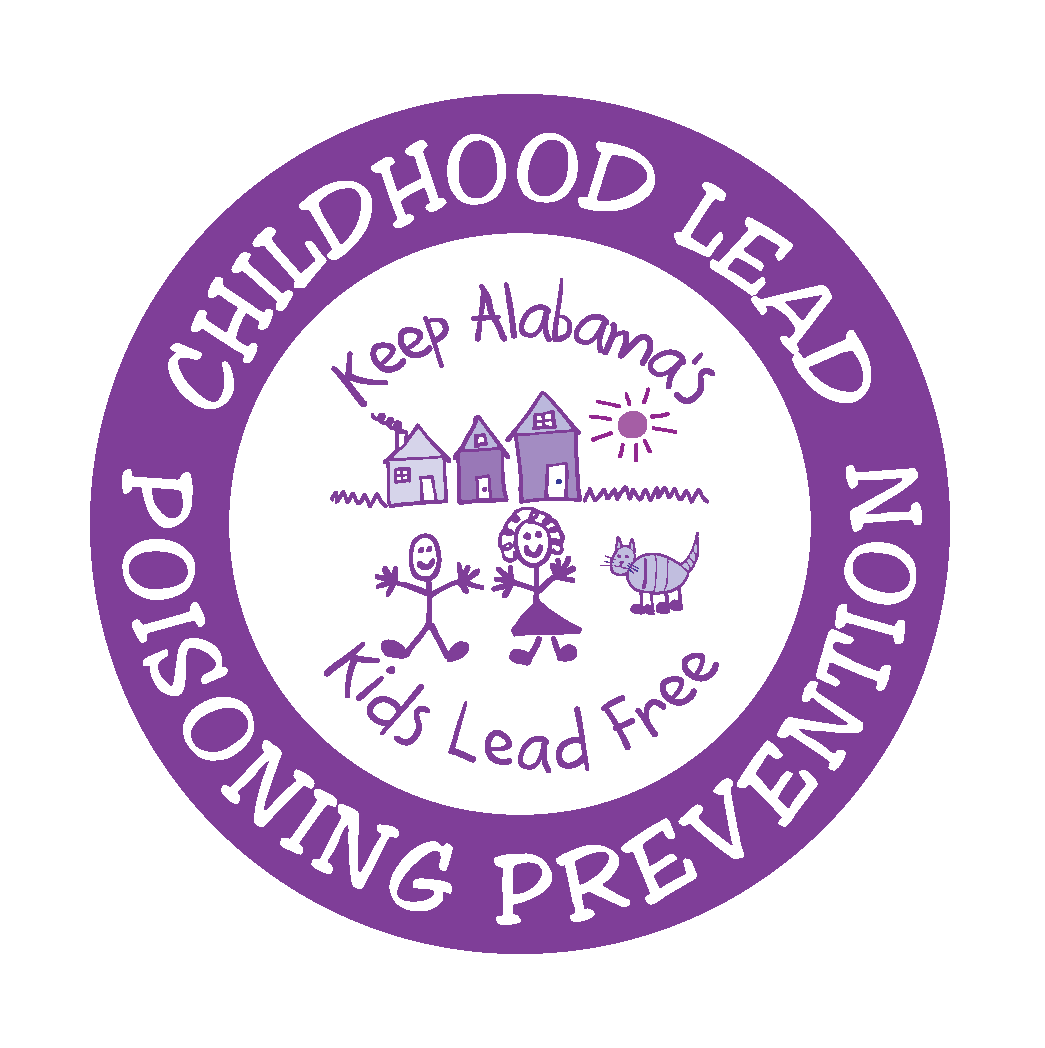
Aim
- Reduce childhood lead poisoning prevalence by 10% through education and outreach.
- Collaborate effectively with internal partners to provide Alabama’s lead-affected children with the most up-to-date and innovative care, increasing care coordination referrals by 25%.

Results
Education & Outreach
- Created a variety of materials and campaigns to educate different stakeholders/audiences on lead poisoning sources, prevention, and blood lead level (BLL) testing. Materials included:
- An environmental lead advertisement on the importance of hiring lead-safe certified renovation contractors
- Media campaigns, advertisements in magazines, stores, and on gasoline pumps, flyers, brochures, and clinic posters
- Developed educational materials and trainings for medical and health care providers on confirmatory/follow-up testing intervals and common errors in BLL testing and reporting.
- Developed video trainings for medical personnel and social work professionals.
Guidelines and Recommendations
- Developed standardized recommendations for testing and follow-up of children with elevated BLL.
- Updated provider reporting forms to include full address of a family and enable census-tract-level analysis.
Care Coordination
- Updated the care coordination protocol to refer children 37 to 48 months of age for Early Intervention/Child Find services.
- Worked with a social work manager to increase the number of lead-affected children referred to care coordination and case management services.
- Increased the number of confirmatory tests after the case management protocol was changed to refer all results with a BLL greater than 5 mcg/dL as well as in environmental assessments. This is likely because more children were being identified as having elevated BLLs and then referred to care coordination.
- Developed an Alabama Childhood Lead Poisoning Prevention Program Workgroup with representatives from:
- Care Coordination Services
- Environmental Health
- Children’s Health Insurance Program
- Special Supplemental Nutritional Program for Women, Infants, and Children
- University of Alabama Safe State
- Injury Prevention
- Alabama Quality Stars
- American Academy of Pediatrics
- Department of Housing and Urban Development
- Voices for Alabama’s Children
- Mobile County Community Prevention
- Alabama Head Start Association
- Alabama State Lab
- Alabama Realtors Association.

Resources
- Updated Protect Your Child from Lead Poisoning (brochure)
- Protect Your Child from Lead Poisoning (brochure translated into Spanish)
- Be a Lead Superhero (poster)
- Environmental lead ad (described previously and published in local parent magazines)
- Is Your Home Lead Safe? (flyer)
- Full page ad in Oh Baby! magazine
- Gas pump and store ads used in media campaign
- A Family’s Lead Poisoning Saga Closes with Better Care: How Improving Provider Education Can Improve Response to Children’s Exposure and Lead Poisoning Continues to Put Too Many Children at Risk (newsletter article and blog post featuring the Alabama CoIIN Team)
Click here to view the full change package of strategies and actions that Alabama used as they worked to achieve their aims as part of the MCEH CoIIN.

Contact



